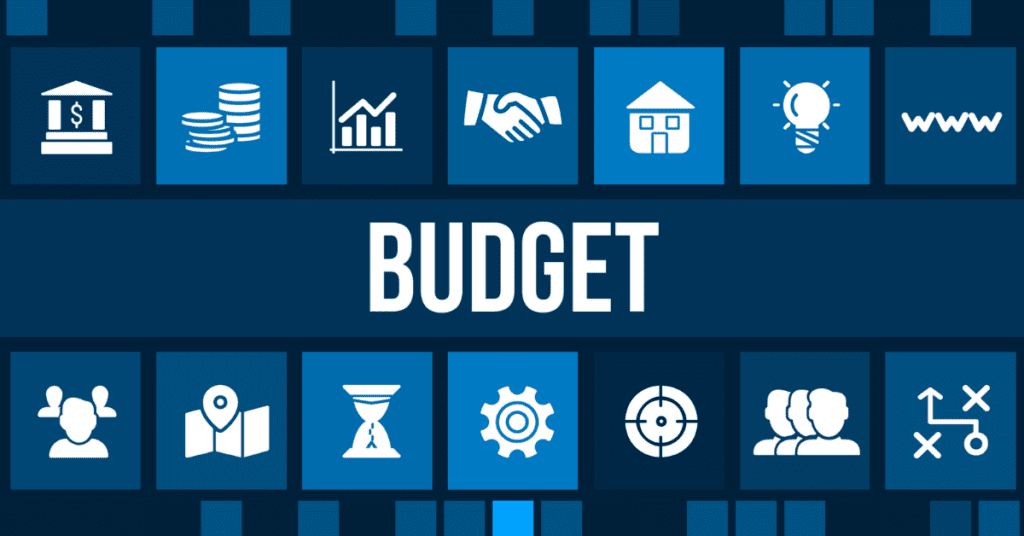Personal Finance Terms / Budget
What Is a Budget?
A budget is a financial tool that outlines your income and expenditures for a specific period, usually a month or a year. It serves as a roadmap for your spending, helping you allocate resources effectively to meet your financial goals.
More About Budget
Budgeting isn’t just about cutting costs; it’s about making the most of your resources. A well-planned budget helps you understand your relationship with money, encourages savings, aids in debt management, and relieves financial stress. Budgets are essential for setting financial goals, measuring outcomes, and planning for contingencies.
Types:
Budgets can be categorized based on their application and complexity. Here are the most common types:
- Personal Budgets: Focus on managing an individual’s or family’s finances. They can be simple, tracking only essential expenditures, or comprehensive, detailing all categories of spending.
Corporate Budgets: Essential for businesses to operate efficiently. They often include various sub-budgets like sales, materials, and labor, which roll up into a master budget.
Methodologies:
Different methodologies can be employed to make the budgeting process more effective. Here are some popular ones:
- 50/30/20 Rule: This popular method suggests allocating 50% of your after-tax income to necessities like housing and food, 30% to discretionary spending like entertainment, and 20% to savings and debt repayment.
- Zero-Based Budgeting: In this approach, every dollar you earn is allocated to specific expenses, savings, or investments. At the end of the budgeting period, you should have zero unallocated dollars, hence the name.

Tools for Budgeting
If you’re looking to take your budgeting to the next level, consider using the Trajectory To Wealth personal finance spreadsheet. This tool allows you to forecast and track your expenses over various periods. It’s especially useful for those who prefer a more hands-on approach to budgeting. You can download the Personal Finance Spreadsheet for free below:
Frequently Asked Questions
A budget is a meticulously crafted financial plan that outlines your income and expenses over a specific time frame, such as a month or a year.
It acts as a financial roadmap, guiding you through your spending, saving, and investment decisions.
A budget is not just a ledger of numbers; it's a strategic tool that helps you understand your financial health, set financial goals, and develop a plan to achieve them.
Budgeting is an indispensable tool for achieving financial stability and independence.
It goes beyond merely cutting costs or living frugally. Budgeting allows you to take control of your financial destiny by helping you identify spending patterns, prioritize essential expenses, and allocate resources for future goals like buying a home, starting a business, or retirement.
It also serves as a safety net, enabling you to build an emergency fund and avoid falling into the debt trap.
In essence, budgeting is about making informed decisions that optimize your financial resources.
Creating a budget involves several steps.
- First, you need to identify all your sources of income, including your salary, freelance work, investments, and any other revenue streams.
- Next, list all your fixed and variable expenses, categorizing them into 'needs' (e.g., rent, utilities, groceries), 'wants' (e.g., dining out, entertainment), and 'savings/debt repayment.'
- Once you have a clear picture of your income and expenses, allocate your income to these categories.
The allocation should align with your financial goals and priorities. For instance, if you're focused on debt repayment, a larger portion of your income should go towards that.
Review your budget regularly to ensure it remains aligned with your financial objectives.
Budgets come in various forms, each serving different needs and complexities.
Personal budgets are designed for individuals or families and focus primarily on managing household expenses.
They can be as simple as tracking essential expenditures or as comprehensive as detailing every spending category.
Corporate budgets, on the other hand, are intricate financial plans used by businesses to allocate resources efficiently.
These often consist of multiple sub-budgets, such as those for sales, materials, and labor costs, which are then integrated into a master budget that guides the company's financial activities.
The tools you choose for budgeting can vary based on your comfort level and the complexity of your financial situation.
Traditional methods like pen and paper are straightforward but may lack the analytical capabilities of digital tools.
Spreadsheets offer more flexibility and can be customized to suit your needs.
Specialized budgeting software and apps come with built-in features like expense tracking, financial goal setting, and real-time analytics.
Some even sync with your bank accounts to provide an up-to-date overview of your finances.
If you're looking for a more hands-on approach, you might consider using a personal finance spreadsheet that allows you to forecast and track your expenses over different periods.
Related Posts
Personal Finance Spreadsheet | Budgeting Tool Template
Use my personal finance spreadsheet to forcecast your expenses, track your actual expenses and create a budget you can stick to.
